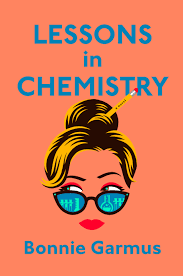Chapter 40: Normal
byOn a chilly November evening, Elizabeth and Wakely sit quietly on the back steps of a house, their conversation delving into the profound and often unsettling topics of mortality and existence—topics that feel anything but normal. Elizabeth admits to frequently pondering death, a stark yet genuine reflection that strikes a chord with Wakely’s own contemplations. Inside the warmth of the house, Madeline remains blissfully preoccupied with her television program, a simple and innocent activity that starkly contrasts with the weighty exchange occurring outside.
As their conversation unfolds, Wakely challenges the societal constructs of “normal,” arguing that it is an illusion, a mere placeholder for conformity that often ignores the extraordinary and the inexplicable. Drawing parallels to stories in the Bible, he offers a perspective that contrasts the mundane experiences of life with the grandeur of spiritual and existential narratives. His intent is not to dismiss Elizabeth’s feelings of despair but to urge her to see beyond them, suggesting that her sense of being “dead inside” is a mental barrier, not an unchangeable reality. Through his words, Wakely hopes to guide Elizabeth toward recognizing her resilience and the undeniable vitality of her existence.
Elizabeth, hesitant but compelled to share, reveals a secret she has carried—a breach of privacy in reading the letters exchanged between Wakely and her late husband, Calvin. Among Calvin’s possessions, Elizabeth discovered correspondence that uncovered Wakely’s inadvertent role in influencing Calvin’s decision to move to Commons, deemed to have the “best weather,” a detail Calvin took to heart. Wakely, upon learning this, is burdened by guilt, as Calvin’s move eventually led to the tragic circumstances of his death. Elizabeth further adds another layer to their shared pain, confessing her own sense of responsibility in Calvin’s fate by admitting to purchasing a leash—a seemingly innocent act that feels laden with unintended consequences in hindsight.
Their conversation deepens as both grapple with their respective burdens. Wakely, despite his outward pragmatism, reveals his personal struggles with faith and his wavering disbelief in God, a conflict exacerbated by the unintended impact of his words on Calvin’s choices. Elizabeth, in turn, delves into her own past, recounting the tragedy of her brother’s suicide—a selfless act meant to save her, which has left her carrying the weight of survivor’s guilt. This revelation exposes Elizabeth’s complex relationship with grief, guilt, and her search for meaning in the wake of immense loss.
Amid these raw confessions, Madeline’s world of innocence momentarily intersects with theirs as a whimsical television theme song drifts through the air. The lighthearted tune provides an almost jarring juxtaposition to the heavy dialogue outside, highlighting the stark differences between the simplicity of childhood and the complex emotional landscapes adults navigate. Elizabeth and Wakely, despite their internal struggles, find a fleeting sense of solace in the shared acknowledgment of their vulnerabilities and their mutual effort to untangle the intricacies of human responsibility, regret, and survival.
Their conversation doesn’t lead to definitive answers but rather a shared understanding of life’s fragility and the complicated emotions that accompany it. Wakely offers his perspective on suicide, emphasizing its multifaceted nature and the challenge of finding peace in its aftermath. Elizabeth listens, her own experiences aligning with his words in unexpected ways, fostering a connection that feels both grounding and redemptive.
In this exchange, the themes of guilt, forgiveness, and resilience intertwine, creating a tapestry of emotions that reflect the human condition. The chapter captures a profound moment of connection, where two individuals, shaped by their unique and shared histories, seek comfort in each other’s honesty and understanding. Their dialogue, though heavy with sorrow, becomes a testament to the power of human connection and the enduring quest for meaning in a world often fraught with loss and uncertainty.


